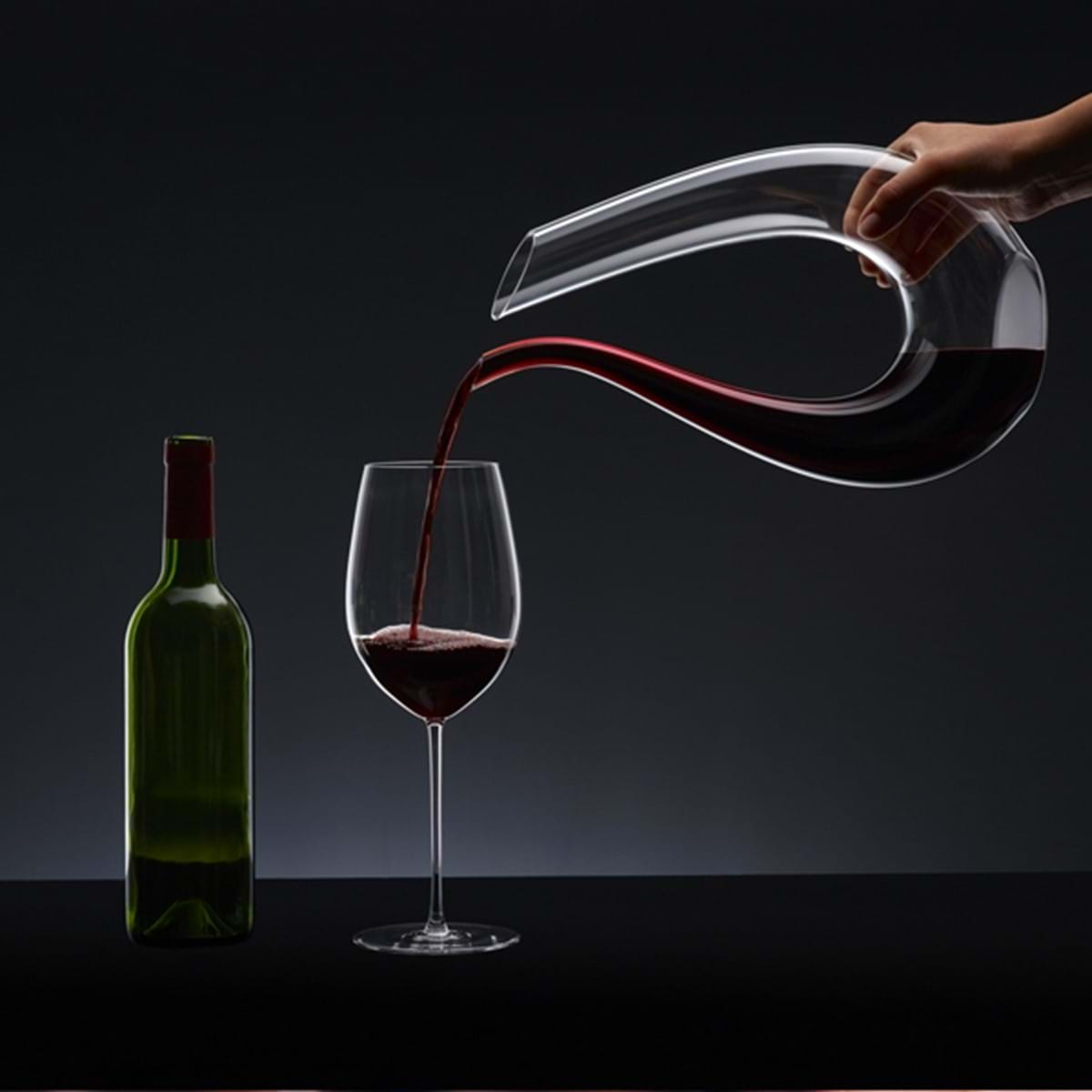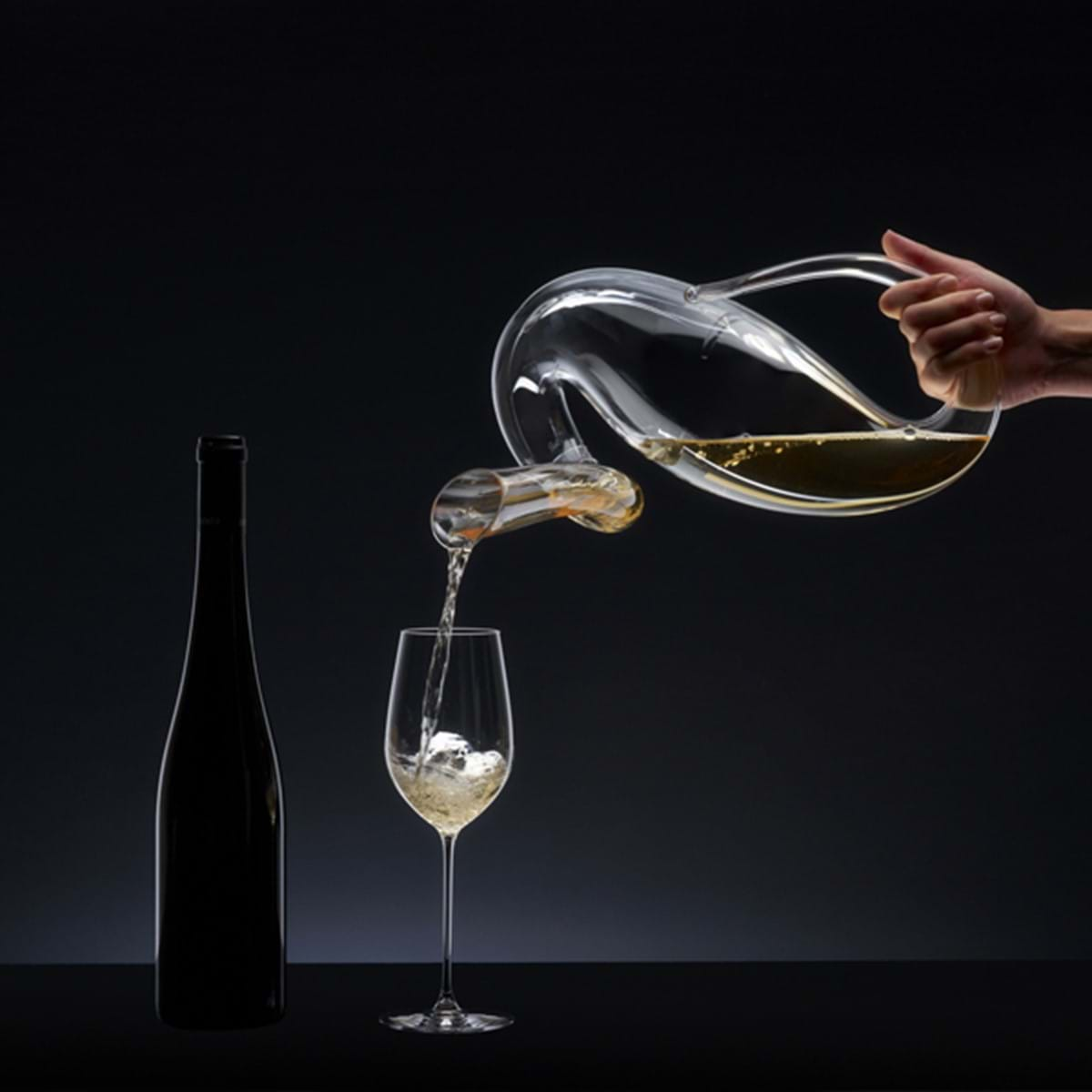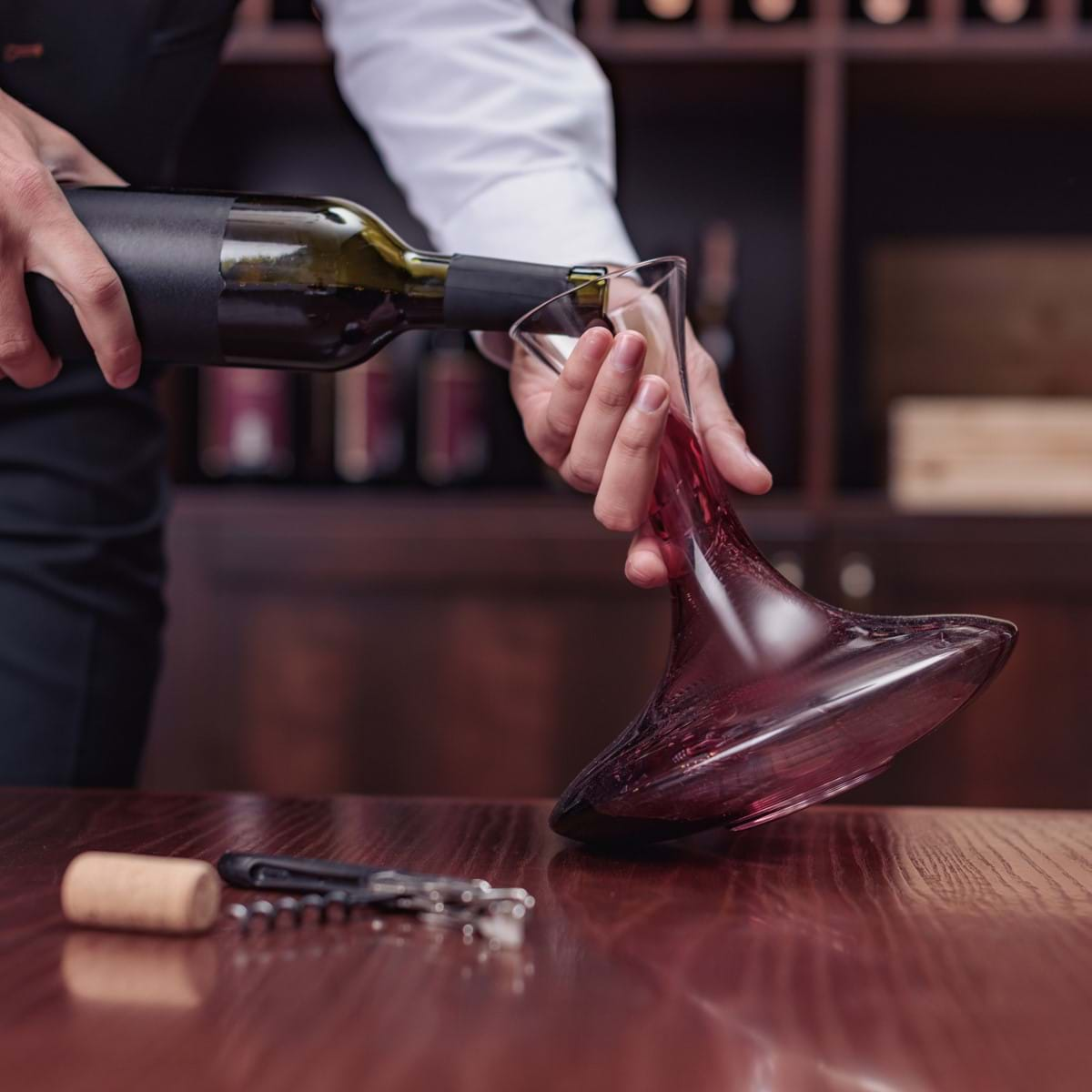Wine connoisseurs, whether professionals or wine lovers, are divided over the process of decanting. When should you decant wine and which wines benefit from it – or is this simply a matter of taste? We believe that wines are still decanted too rarely, and shouldn’t be restricted to red wines.
Traditionally, only mature red wines were decanted in order to separate the wine from sediment and to gently aerate the wine after years spent in the bottle. A wine 10 years or older is typically considered as matured.
However young red wines also benefit from decanting, as the aeration makes them smoother and rounder, speeding up the ageing process.
We should decant younger wines (younger than 10 years) to open up aromas and flavours, revealing more complexity. Carbon dioxide is the main preservation element in wine, which is integrated during the first (alcoholic) fermentation. Exposure to oxygen burns off carbon dioxide, effectively maturing the wine and allowing the bouquet to develop faster.






